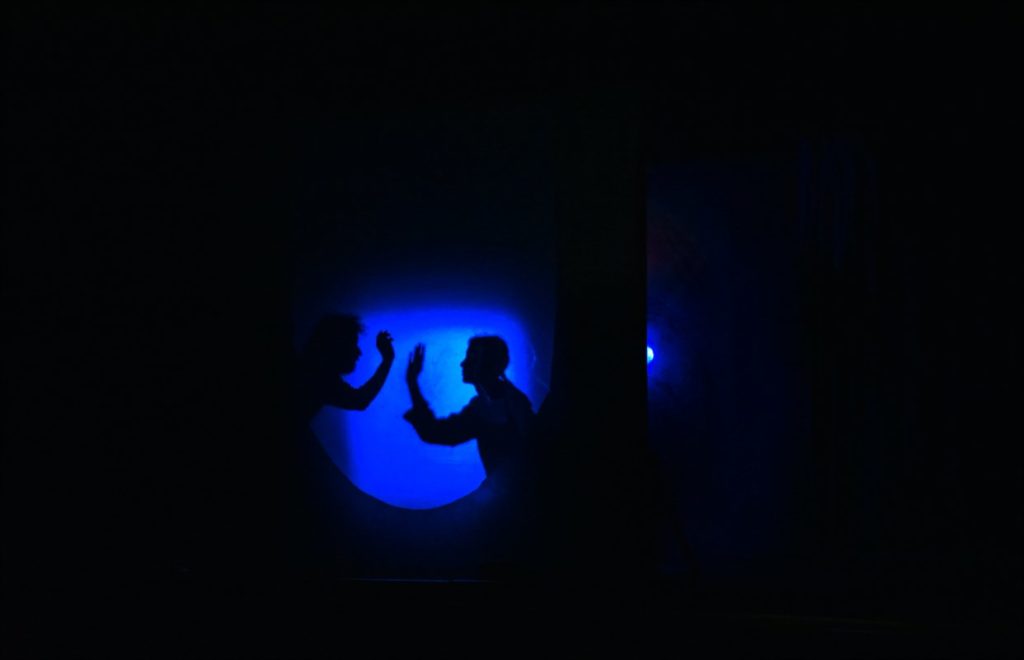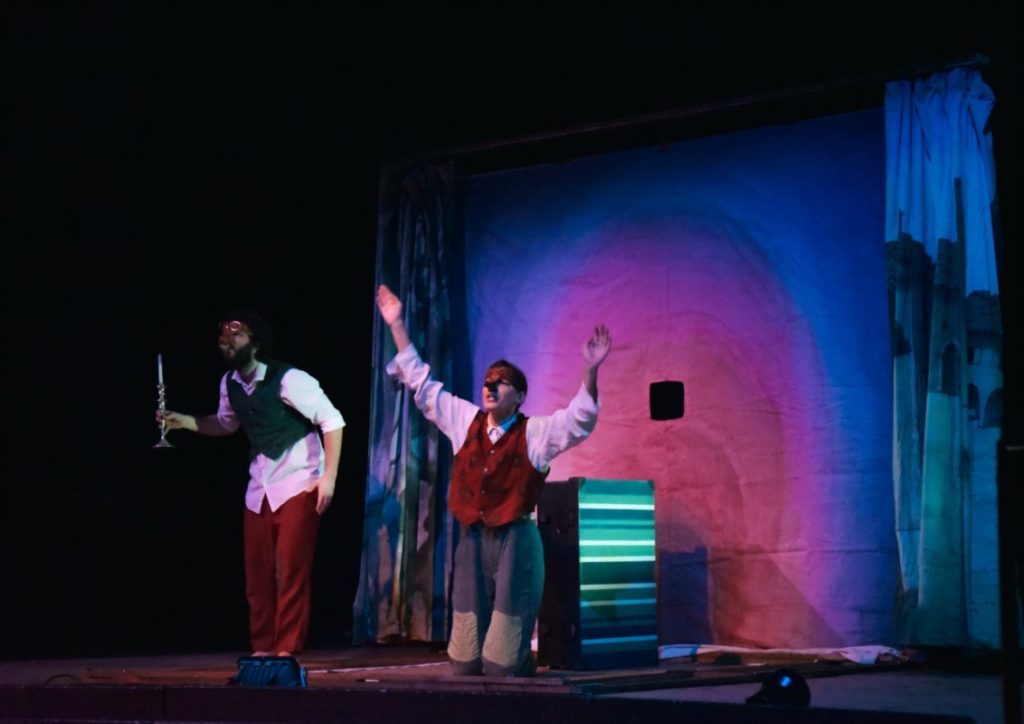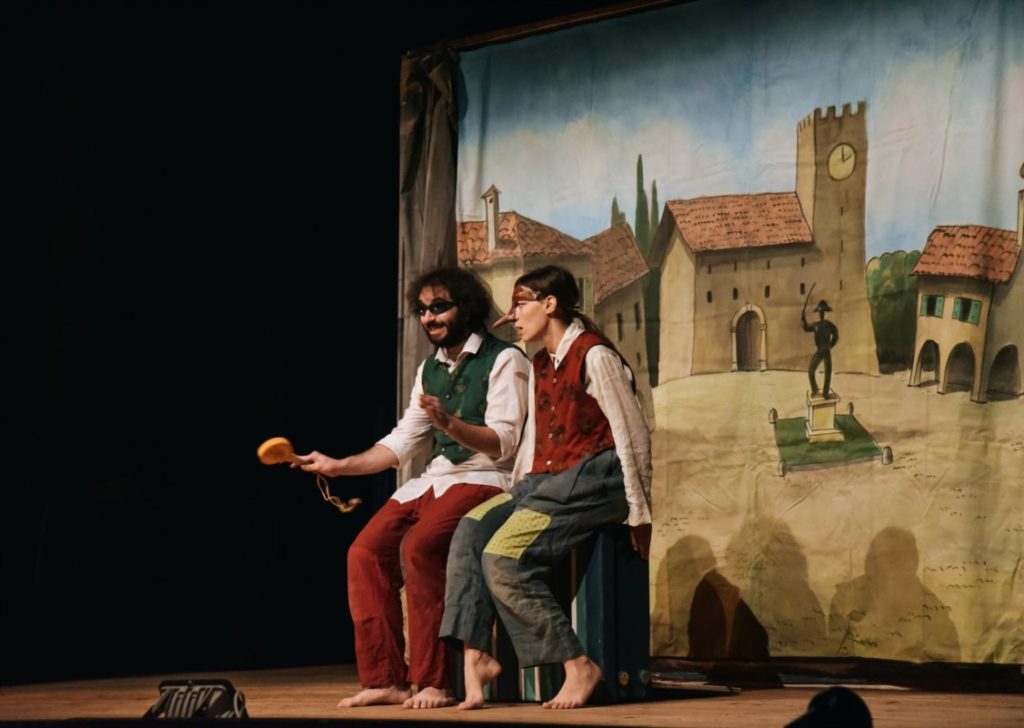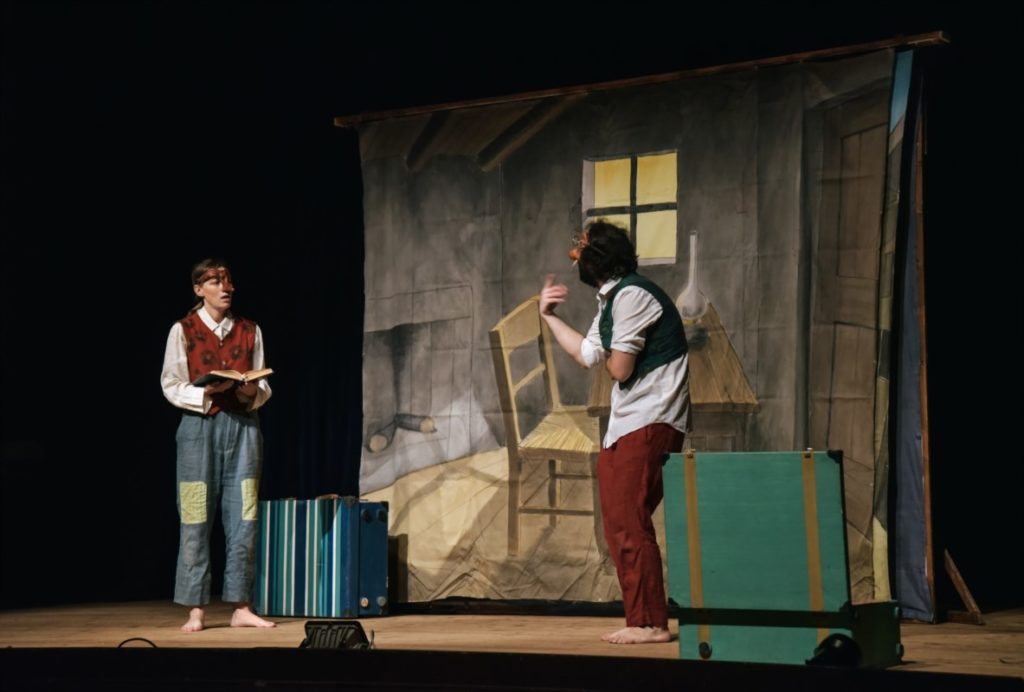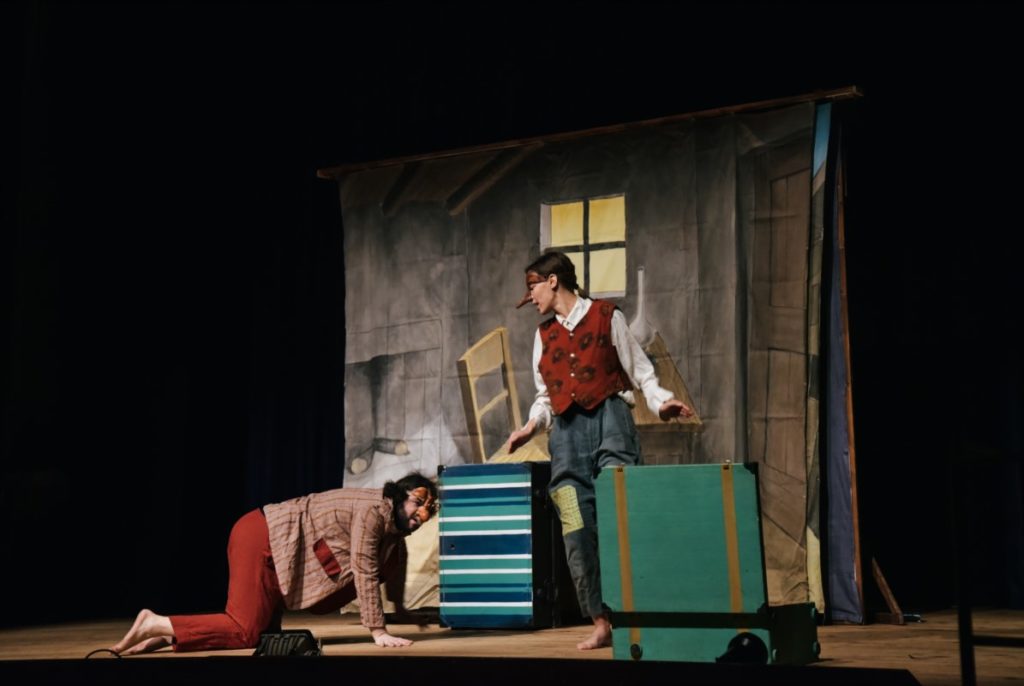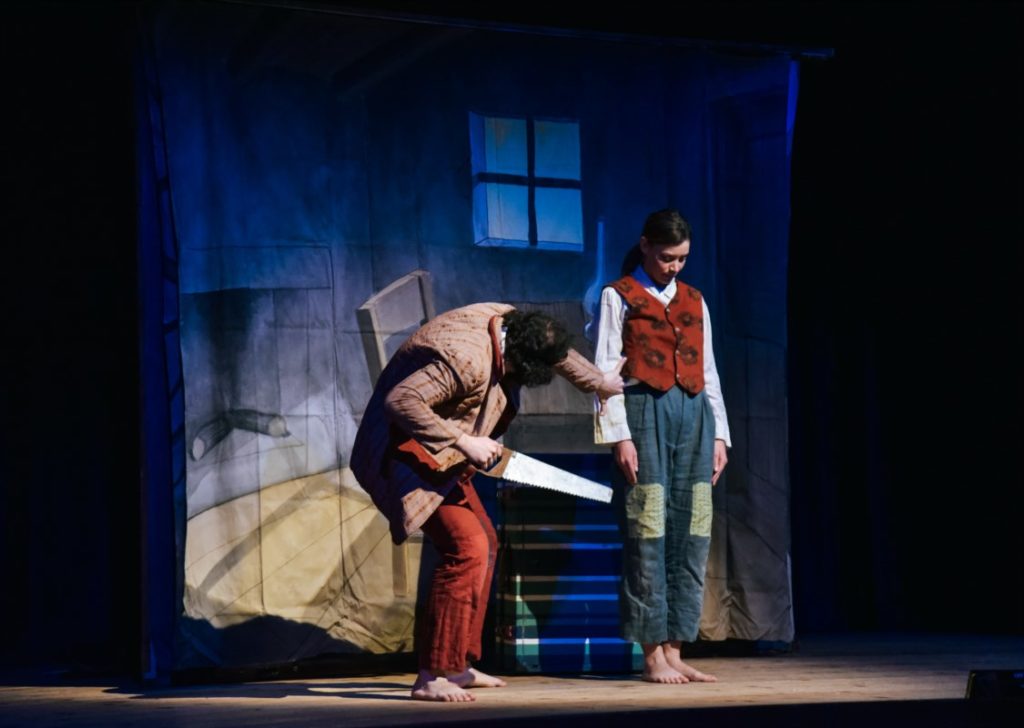The show
Once upon a time … there was a king. No, once upon a time there was a piece of wood. Not even. Once upon a time there was the theater … The show is about to begin. The audience is already seated. Enter the actor with the inevitable suitcase and a big nose. And here comes the actor with the inevitable suitcase and another big nose. “You already said that!” our little readers will say. “I know” I reply, but the actors are two, with two suitcases and two noses and both are firmly determined to tell, alone, the story of the puppet Pinocchio …
Immediately they begin to quarrel, nose to nose, about who will have to tell it and who will play the part of Pinocchio. The suitcases are opened and our “journey for noses” starts. Yes, because Pinocchio is nothing more than a wooden child, with a nose he is ashamed of. But the whole world is made up of noses, like the cherry red nose of Geppetto, the big nose of Mangiafuoco, not to mention the noses of the Cat and the Fox. Little Pinocchio, carried away by his curiosity and his pranks, will have to make a fantastic journey before returning, finally transformed into a real child, to the house of his father Geppetto …
Two actors, two suitcases, infinite noses and a great classic of children’s literature. Pinocchio represents the initiation rite of a child who wants to become part of society. To do this, like all children of the well known fairy tales, he will have to leave the house and face the world, travel through the villages of Toys or Acchiappacitrulli, deal with fears (Mangiafuoco) with conscience (Grillo Parlante) with friendship (Candlewick) and with the most varied swindlers (the Cat and the fox), only after passing these tests will he finally enter adulthood (in the novel represented by the “transformation” into a child) to take care, in turn, of his own affections (the father Geppetto and the Blue Fairy). The two actors will tell the story with the help of small objects, masks, noses, puppets, stealing the parts, improvising and maybe in the end they will understand that, perhaps, to tell it in two you have twice as much fun.



